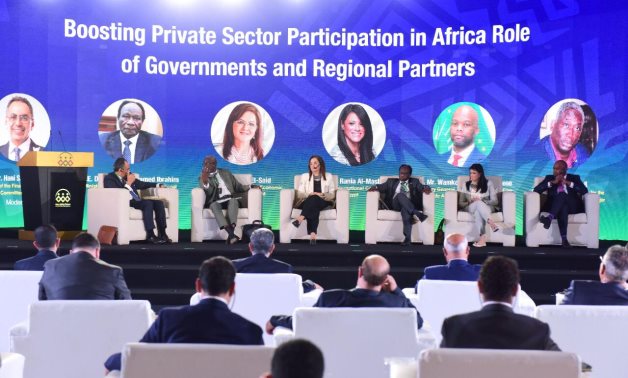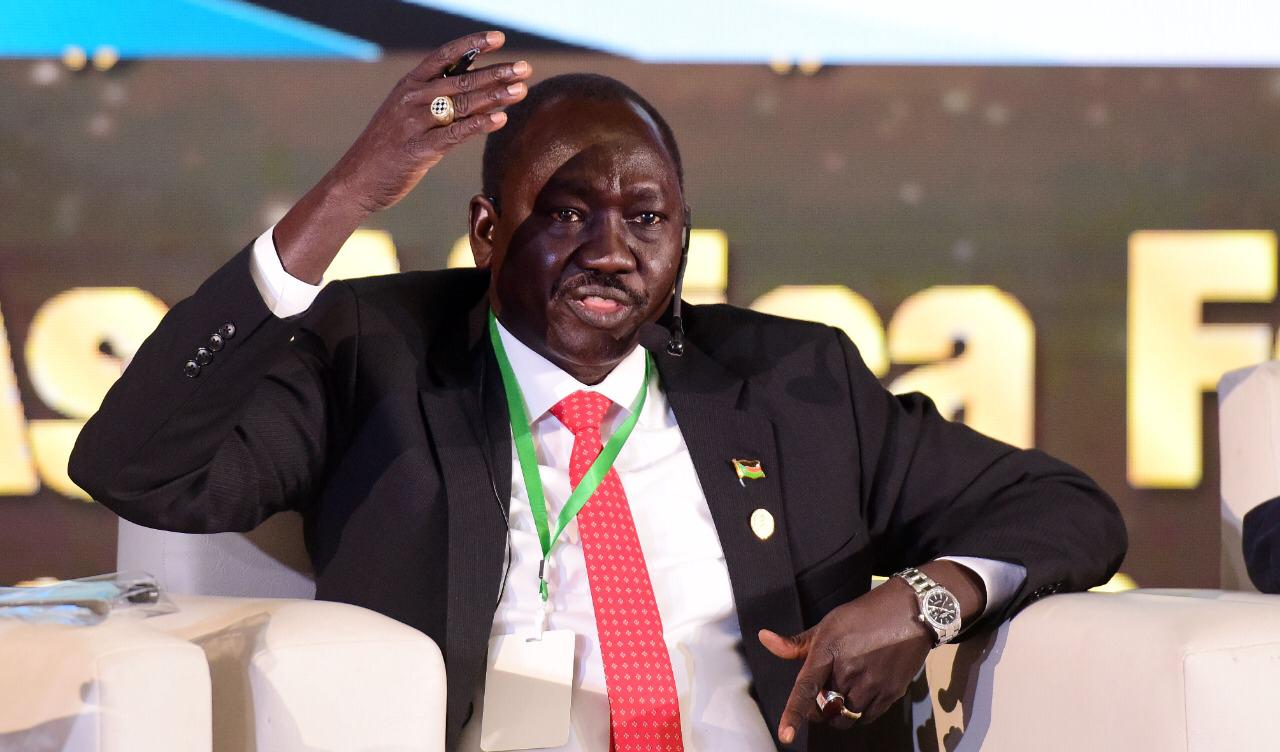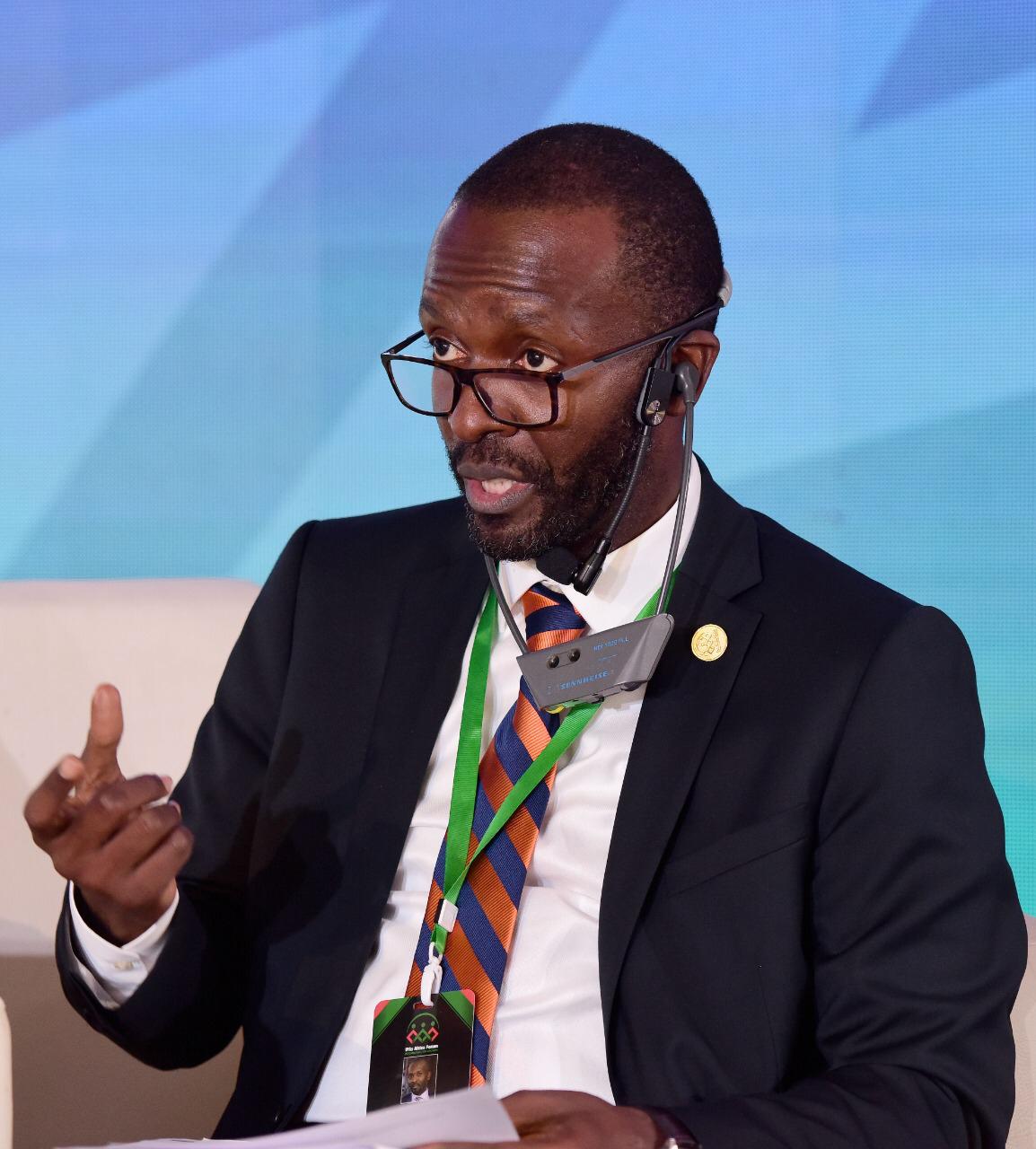
Panel in IPAs Africa Forum 1 on June 11, 2021. Press Photo
CAIRO - 11 June 2021: Secretary General of the African Continental Free Trade Area (AfCFTA) Wamkele Mene underlined Friday in IPAs Africa Forum 1 that the absence of a legal framework caused the absence of intra-African infrastructure and as a consequence the rates of infra-African trade is very low.
“If we actively benefit from the AfCFTA, we can collectively be as competitive as China or India in the coming 20 years,” Mene clarified.
Ensuring the optimum implementation of the AfCFTA area, the organization developed in collaboration with Afreximbank a digital platform that identifies the country of origin of products.
“We have to boost industrialization in pharmaceuticals, and automobile sectors among others,” the AfCFTA secretary general added.
Mene also suggested investing in joint African corporations creating models similar to multinationals.
The African official also stressed the salience of the facilitation and protection of investment. He pointed out that COVID-19 pandemic cut FDI inflow to Africa by 40%.
Sudanese Minister of Investment and International Cooperation El-Hadi Mohamed Ibrahim pointed out that attracting serious investment is about creating a favorable investment climate.
Ibrahim said Sudan has embarked on a reform program and promulgated relevant laws.
He added that Islamic banking and financing have been introduced given that many Sudanese investors used to refrain from getting loans out of certain religious beliefs.
Showcasing how Africa is rich in natural resources highlighting Sudan as an example, the minister says his country has 98 percent of the types of mineral resources existing on the planet.
As restrictions on financing Sudan are lifted, all funds acquired from international institutions will be directed to development.
With regard to economic relations with fellow African countries, the minister asserted that strong investment relations between Egypt and Sudan must remain as are.
“Sudan has the potential to grow wheat in amounts that would suffice both Sudan and Egypt, which both import wheat,” Ibrahim elaborated.
The minister added that introducing more ports in Sudan will benefit many African countries, particularly closed ones. Ibrahim clarified that Sudan can get connected with fellow African states located to the west until Senegal, and with others to the east such as Ethiopia, and Djibouti.
In a similar context, South Sudanese Minister of Investment Dhieu Mathok Diing highlighted that his country is well connected with neighboring countries via roads, except for Sudan and Kenya.
 South Sudanese Minister of Investment Dhieu Mathok Diing
South Sudanese Minister of Investment Dhieu Mathok Diing
As for the sectors South Sudan aspires to attract investment to, they include agriculture, mining, and mapping natural resources among others.
Managing Director of the Democratic Republic of Congo Investment Promotion Agency (ANAP) Anthony Nkinzo Kamole argued that the base for a booming intra-African trade is not just shared infrastructure and roads but also socio-economic and cultural integration.
Given that economic integration requires resolving certain local problems, Kamole showcases that agricultural issues always extend to neighboring countries and are never confined to a certain country.
 Managing Director of the Democratic Republic of Congo Investment Promotion Agency (ANAP) Anthony Nkinzo Kamole
Managing Director of the Democratic Republic of Congo Investment Promotion Agency (ANAP) Anthony Nkinzo Kamole


Comments
Leave a Comment